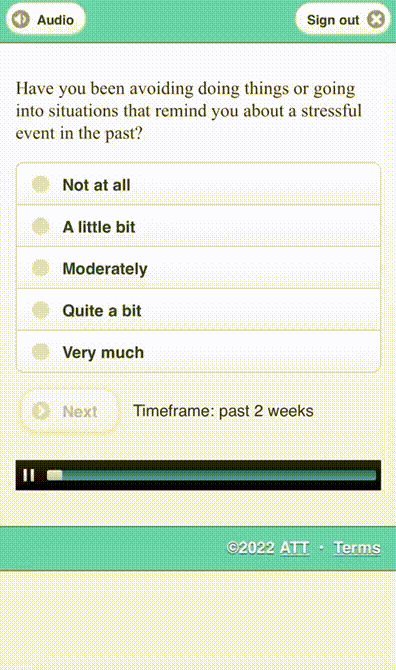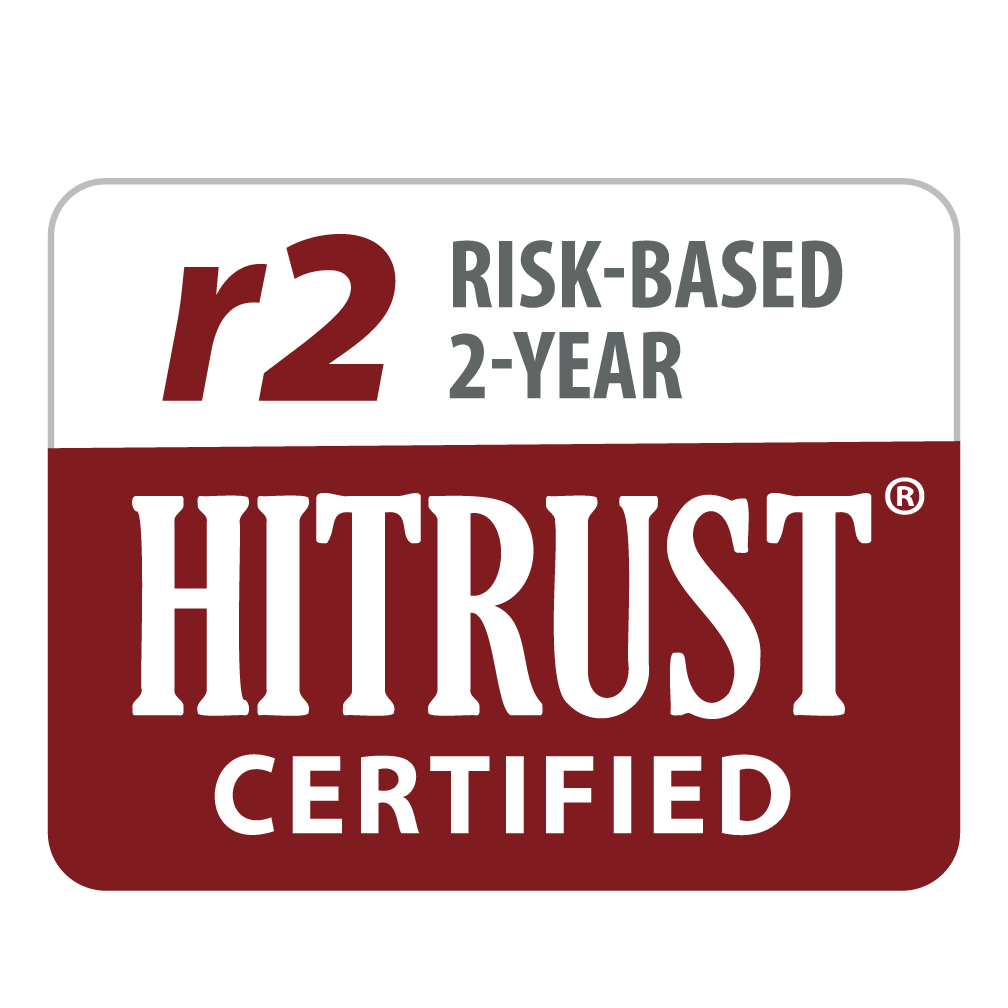Are you looking to accurately measure PTSD?
The National Council on Behavioral Health estimates that up to 70% of adults in the United States have experienced a trauma at some point in their lives, and the National Center for PTSD estimates that up to 15 million adults qualify for a diagnosis of Post-Traumatic Stress Disorder (PTSD) in any given year. These numbers, while large, almost certainly underestimate the rate of PTSD in the American population. Historically, there has not been a quick and easy way to screen for PTSD. The CAD-PTSD and the CAT-PTSD represent an important break from the status quo because they are able to drastically reduce both patient and clinician burden while dramatically increasing the precision of diagnosis and severity measurement.
Both of these modules allow providers to measure the impact that PTSD symptoms are having on their patient’s day to day lives in 35-96 seconds. The CAD-PTSD is able to efficiently provide a diagnosis of PTSD as well as a specific probability associated with the diagnosis using, on average, only 6 adaptively administered questions in 35 seconds. For patients who receive a PTSD diagnosis, the CAT-PTSD is then immediately administered to provide a more comprehensive understanding of the severity of the patient’s presentation. This adds an additional minute to the interview, for those who have a positive CAD-PTSD. The CAT-PTSD can also be administered without the CAD-PTSD.

The CAD-PTSD & CAT-PTSD
The CAT-PTSD, developed in collaboration with the Veterans Administration, makes use of a 211-item bank but requires only an average of 10 questions to accurately evaluate PTSD severity. This module provides clinicians a numeric severity score between 0-100 along with a status of none, mild, moderate, or severe to help them understand where in the possible range of severity their particular patient is. This information makes the CAT-PTSD ideal for measurement-based care, treatment triage, and outcome assessment.
Both the CAD-PTSD and the CAT-PTSD have been validated against the Clinician-Administered Scale for PTSD for DSM-5 PTSD diagnosis, which is the gold standard for PTSD diagnosis, outperforming longer traditional measures such as the PCL-5. The reason is that traditional PTSD measures fix the items and allow the precision to vary (i.e., administer the same items to all patients, whether or not those items apply to them). By contrast, we adaptively select a small subset of items from a much larger “bank” of items, that are specifically targeted to the level of severity of that individual. The result is a dramatic increase in the precision of measurement with a lower burden of measurement for the patient and significant elimination of burden for the clinician.
Lastly, these modules are more than simply clinically advanced – they are logistically simple. Both modules are cloud-based and scalable to any size population via a HIPAA-secure Amazon Web Services (AWS) platform. This cloud-based system allows patients to be screened, measured, and monitored in any place, at any time. Additionally, with the help of our API, these data can then be seamlessly integrated into your electronic health record system to ensure that all of the data is where providers expect it to be. Our goal here is to make universal screening for PTSD easy and ensure that no patients miss the opportunity to receive help that they may desperately need.
In the News
Similarities and Differences Between PTSD, Depression, and Other Major Mood Disorders
“Lisa Brenner PhD, director of the Rocky Mountain Mental Illness Research Education and Clinical Center, Denver, Colorodo, discusses how the similarities between post-traumatic stress disorder (PTSD) and other major mood disorders, such as depression, can lead to misdiagnosis.”
READ MORERapid, Adaptive Computer-Based Screener for Posttraumatic Stress Disorder Validated Among Veterans
“The study authors concluded that the CAD-PTSD and CAT-PTSD tools may allow for rapid PTSD screening among veterans, potentially reducing the burden for both patient and clinician in the routine veteran health care setting.”
READ MORENew Developments in Screening Tools for PTSD
In Part 1 of his interview with Psych Congress Network, Robert Gibbons, PhD, Blum-Riese Professor of Biostatistics, discusses new developments in screening tools for post-traumatic stress disorder (PTSD) using computerized adaptive testing. In Part 2, Dr Gibbons further discusses the machine-learning algorithm used to derive diagnosis of PTSD.
READ MOREComputerized adaptive assessment tools valid for veterans with PTSD
“According to the researchers, measurement approaches such as CAT aim to move the times to the patient’s severity level; however, in computerized adaptive diagnosis (CAD), the goal is to move the items at the tipping point between a positive and negative diagnosis. Thus, both methods are adaptive but incorporate different statistical approaches.”
READ MORE
